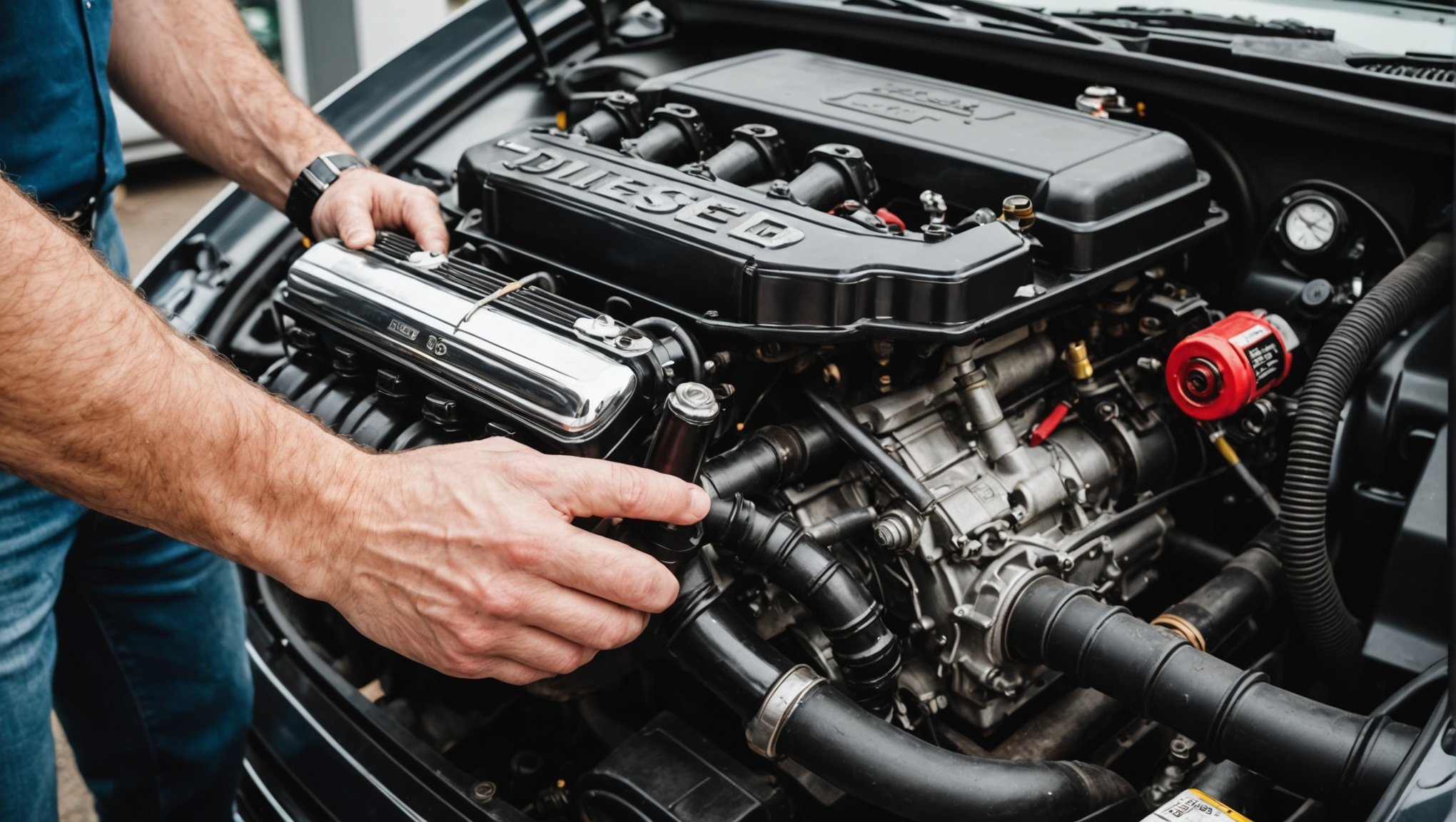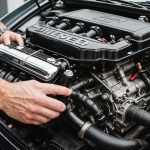From the friendly family car to the hard-working commercial van, vehicles are an integral part of our daily lives. But with increasing environmental concerns and advancements in fuel efficiency, some of you may be considering converting your petrol engine to a diesel engine. Today, we’ll explore the legal and safety aspects of such a conversion in the UK. Please remember, it’s not just a question of mechanics – there are also regulations and procedures to follow to ensure this engine swap is legal and safe.
Understanding the Legal Aspect of Engine Conversion
Before you break out the toolbox and purchase a new diesel engine, you need to familiarise yourselves with the legalities surrounding engine swaps in the UK. Understanding the rules set by the Driver and Vehicle Licensing Agency (DVLA) will ensure your conversion process remains within the boundaries of the law, preventing any future complications.
In parallel : How do you properly adjust and balance a carburetor in classic UK cars?
In the UK, there is currently no specific law prohibiting you from swapping a petrol engine for a diesel engine in a vehicle. However, it isn’t as simple as just carrying out the conversion. The DVLA requires you to inform them of any changes to the vehicle’s original specifications, which includes changes to the engine.
Once the engine swap is completed, you must notify the DVLA. This is crucial so that the vehicle’s V5C logbook can be updated, reflecting the changes made. You will need to fill out section 6 of your V5C form, detailing the new engine number, the cubic capacity, and the fuel type. The updated logbook ensures the correct emissions class is applied to your vehicle, which in turn affects your road tax cost.
In the same genre : What are the regulations for using neon underglow lighting in UK cars?
The Safety and Emission Norms to Adhere to
While it’s essential to understand the legal requirements, it’s equally important to consider the safety and emission norms when swapping your engine. The UK government is increasingly strict towards vehicle emissions in its bid to reduce air pollution.
Primarily, the vehicle must meet the UK’s emission standards. Failure to adhere to these regulations may result in your vehicle failing its MOT test, making it illegal to drive on public roads. To ensure your new diesel engine complies with these norms, it is advisable to install an engine that is newer than the vehicle itself since newer engines tend to have lower emissions.
Secondly, you must ensure that your vehicle can physically and safely accommodate the new engine. Diesel engines tend to be heavier than their petrol counterparts, and this additional weight could impact your vehicle’s handling and performance. So, you should consult with a professional to determine whether your vehicle’s structure can safely support a heavier engine.
Choosing the Right Diesel Engine and Installer
Selecting the right diesel engine and professional installer is an essential step in your engine conversion process. A wrong choice of engine or an unqualified installer can lead to severe issues ranging from poor vehicle performance to legal complications.
When choosing a diesel engine, it’s important to consider the size, power output, fuel efficiency, and compatibility with your vehicle. To ensure the legality and safety of your converted vehicle, you should opt for a diesel engine that meets or surpasses the current emission standards.
As for the installation, although you might be tempted to do it yourself to save on costs, it’s best left to the professionals. A qualified installer will have the necessary knowledge and skills to carry out the conversion successfully, ensuring it’s safe, legal, and efficient.
Cost and Insurance Implications of Engine Swapping
The cost of converting a petrol engine to a diesel engine can vary significantly depending on the type of engine chosen and the charges by the installer. However, the financial implications do not stop at the initial outlay.
You must inform your insurance company before carrying out an engine swap as it can significantly affect your vehicle’s insurance premium. Since diesel engines are often more powerful and costlier than petrol engines, insurers may see your vehicle as a higher risk, leading to an increase in your insurance premium.
So, before deciding to swap your engine, you should contact your insurer to understand the potential impact on your insurance premium. This will allow you to make an informed decision, weighing the potential benefits against the costs.
Getting Your Vehicle Road-Ready Post Conversion
Once your new diesel engine is installed, there are a few additional steps that you need to take to make your vehicle road-legal and ready.
Firstly, as mentioned earlier, you must inform the DVLA about your engine swap so that the V5C logbook can be updated. The incorrect engine details in your V5C could lead to complications such as fines or problems with your insurance.
Secondly, even though your vehicle may have recently passed its MOT test, you will need to book another one following the engine swap. This is to ensure that the vehicle still meets all the necessary safety and emission standards with the new engine.
Lastly, don’t forget to inform your insurance company about the engine change. Failure to do so might invalidate your insurance, leaving you unprotected in case of an accident.
In conclusion, converting a petrol engine to a diesel engine in a UK vehicle is possible, but it requires careful consideration of various legal, safety, and financial factors. By following the regulations set by the DVLA and the guidance provided in this article, you can ensure your engine swap is both successful and legal.
Evaluating the Environmental Impact of Diesel Engines
As you prepare to swap your petrol engine for a diesel engine, taking stock of the environmental implications is crucial. Environmental awareness is now a significant factor in the automotive industry, primarily due to the increasing severity of global warming and climate change.
Contrary to popular belief, modern diesel engines are not as environmentally damaging as their predecessors. Advancements in technology have led to the development of diesel engines that are more fuel-efficient and emit fewer greenhouse gases per mile compared to their petrol counterparts.
However, diesel engines do produce higher amounts of particulates and nitrogen oxides, substances linked to respiratory ailments and other health issues. Thankfully, the introduction of Diesel Particulate Filters (DPFs) and Selective Catalytic Reduction (SCR) systems in modern diesel engines has helped to reduce these harmful emissions significantly.
While diesel engines can offer improved fuel efficiency and reduced CO2 emissions, it’s worth considering alternatives such as hybrid and electric vehicles. The UK government’s plan to ban the sale of new petrol and diesel vehicles by 2030 underscores the growing shift towards cleaner, renewable sources of energy for transportation.
Engine Swap vs Buying a New Diesel Car
Before proceeding with an engine swap, it might be worth considering buying a new diesel car instead. An engine swap can be a complex, time-consuming process that requires a considerable financial investment.
Buying a new diesel car could save you from the potential legal and safety complications that come with engine swaps. Additionally, new models are more likely to comply with the latest emission standards and come equipped with modern features designed to enhance fuel efficiency and reduce emissions.
However, if you are attached to your vehicle or if it has a high sentimental or financial value, an engine swap might be the more sensible option. It allows you to retain your beloved vehicle while benefiting from the fuel efficiency and power of a diesel engine.
Remember, whether you decide to proceed with an engine swap or opt for a new diesel car, the key is to make an informed decision that best suits your needs, budget, and environmental responsibility.
Converting a petrol engine to a diesel engine in a UK vehicle is a legal process provided the necessary regulations and norms are adhered to. It is a complex process that requires a clear understanding of the legalities involved, the safety and emission norms, choosing the right diesel engine, installation, and understanding the cost and insurance implications.
The environmental impact and the choice between an engine swap and buying a new diesel car are also significant factors to consider. As the world leans more towards sustainable and renewable energy sources, electric vehicles may be worth considering as a future-proof alternative.
Whether you’re a car enthusiast looking for more power, a business owner trying to reduce operation costs, or someone trying to minimize their environmental impact, swapping your petrol engine for a diesel engine can be a viable option. By following the regulations set by the DVLA, you can ensure a smooth, successful, and legal engine conversion. But remember, it’s always vital to seek professional advice before embarking on such a significant project.











